Forum
Eco-peace Tourism in Gangwon Province
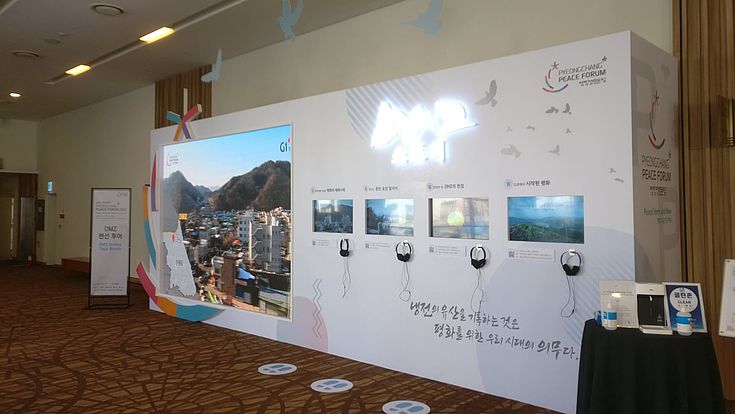
On the second day of the forum, Dr. Bernhard Seliger, representative of HSF Korea, Dr. Doug Watkins, representative of East Asian-Australasian Flyway Partnership (EAAFP), Donguk Han of ECO KOREA and PGAI (Wetland Ecology Institute), Jongseok Park of JBESC (Jeollabuk-do Ecotourism Sustainable Center), and Dr. Hyun-Ah Choi, a senior researcher at HSF Korea joined the session, discussing “The Possibility of Eco-peace Tourism in the South & North Gangwon Province Through Birdwatching.”
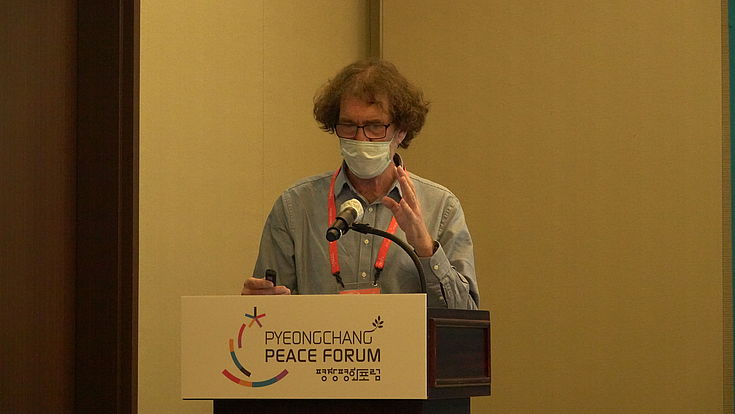
Picture: © EAAFP
Dr. Watkins started his presentation by introducing the objective of EAAFP which contributes to preserving migratory birds and increasing public awareness. EAAFP is now engaged in various activities regarding bird protection through expanding its partnerships with 148 regions in 20 countries. Dr. Watkins also noted that local management measures such as national regulations, tourist approach and capabilities of each region should be considered in terms of ecotourism. He emphasized the importance of bird-centered ecotourism saying, “If tourism is centered around birds, we can look after bird habitats and preserve nature.”
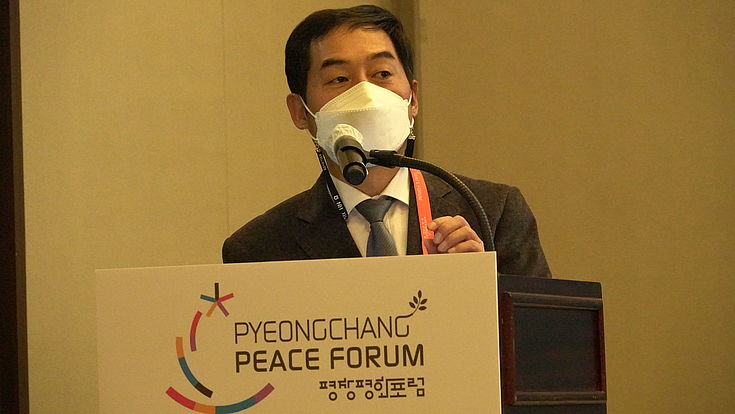
Picture: © EAAFP
The following presentation was by Dr. Dong Wook Han, under the title “How to promote ecological cooperation between North and South Korea – Focusing on the transboundary estuary and Joint utilization of maritime border areas on the east and west coasts.” He claimed that despite the different perspectives on the peaceful use of the shared coast of North and South Korea, the local community should be considered above all. Moreover, he urged seabird protection in Rason as well as building shared fishery in the East sea and ‘peaceful sea park.’ Finally, Dr. Han stated that the Panmunjom Declaration should be pushed forward in order for peaceful uses of shared waters.
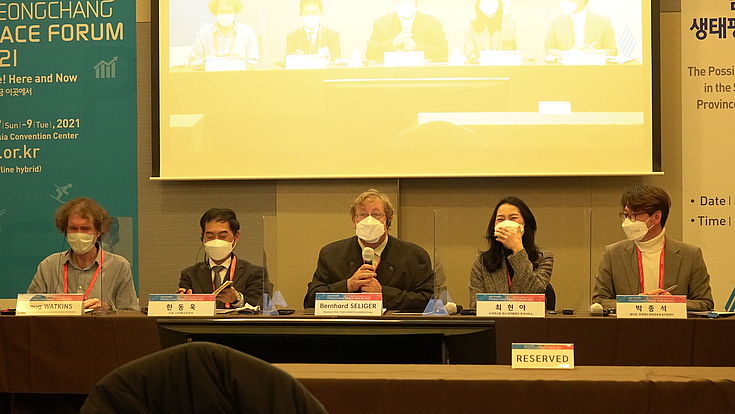
Picture: © EAAFP
Dr. Jong Seok Park’s presentation introduced the role of JBESC, underlining the definition of ecotourism, which pursue tourism with sustainable development and environmental conservation. He then discussed North Korean ecological and environmental policies, from its engagement with the International Union for Conservation of Nature and Natural Resources (IUCN) and World Wildlife Fund (WWF) in 2016 to Mt. Geumgang ecotourism in 2019. Dr. Park proposed an increase in environmental agreements and private exchanges between the two Koreas, addressing the potential of the Gangwon Province, designated as a UNESCO park, and indicating a lack of interchange with the locals.
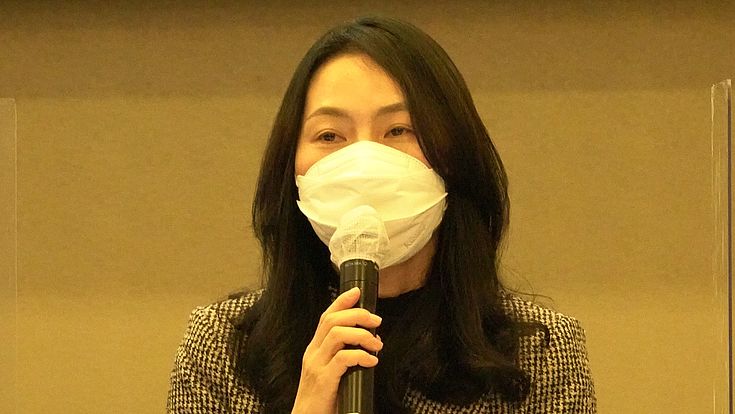
Picture: © EAAFP
The final presentation was by Dr. Hyun-Ah Choi, on the topic “Possibility of Ecotourism in North and South Gangwon Province Based on Bird Observation.” She first explained the work of HSF Korea, a survey on land and sea birds in the Goseong County, Gangwon Province since 2015. A total of 36 species of winter seabirds were observed, including the Brant Goose, Harlequin Duck, etc. In terms of ecotourism, she stressed that ecotourism is not subject to North Korean sanctions and positive impacts are to be expected on bird watching-based ecotourism in the Gangwon Province.
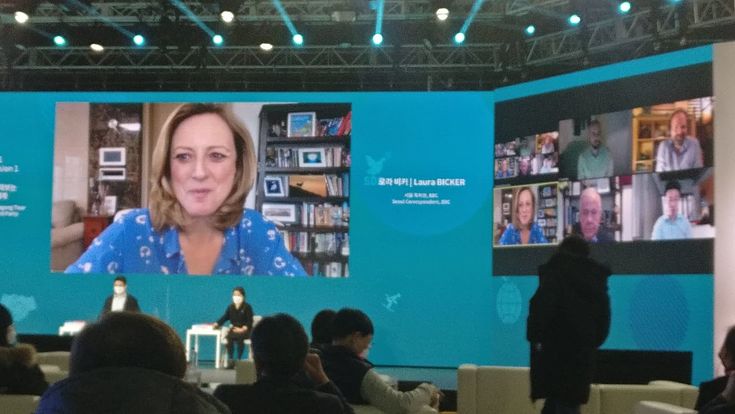
After the presentations, a QnA session was held, moderated by Dr. Seliger. Asked about the possibility of ecotourism in North Korea and Bird Influenza (AI), Dr. Watkins answered that “Ecotourism will gradually take place in North Korea since it acts as a bridge to increase understandings about North Korea and introduce North Korean communities,” and that “AI will also be prevented with rightful hygiene measures.” Regarding the question on East and West Sea research and marine litter, Dr. Dong Wook Han stated that “it will be helpful if North Korean researchers can jointly research on the East and West Coast of Korea” and that “join monitoring and data research is necessary on an international level since there are not enough studies on marine litter". Furthermore, Dr. Jong Seok Park said that “the Province should have its own measures on environmental policies with the help of international institutions” regarding the government’s engagement of ecotourism. To this, Dr. Hyun Ah Choi added that “forums like this should often take place to expand the public’s insight on ecotourism and pursue sustainable development.”
